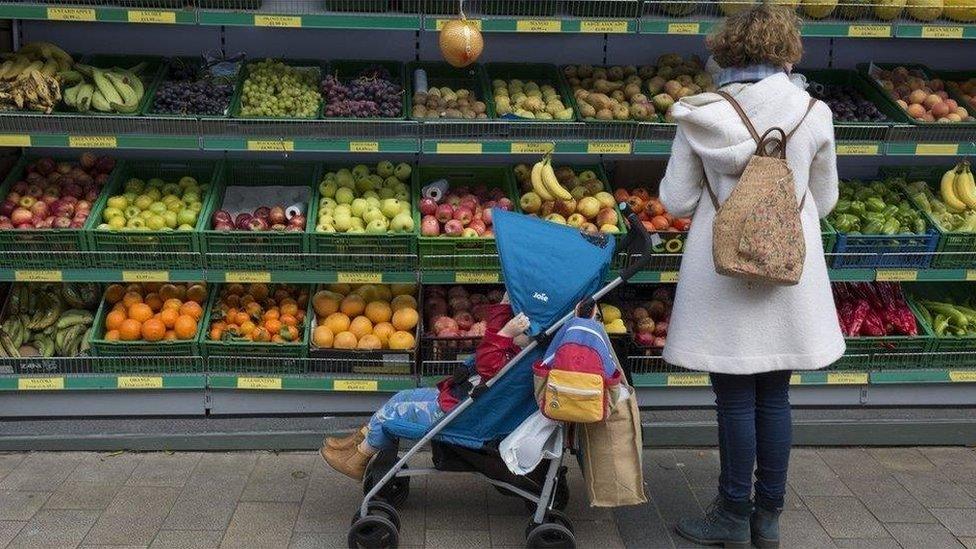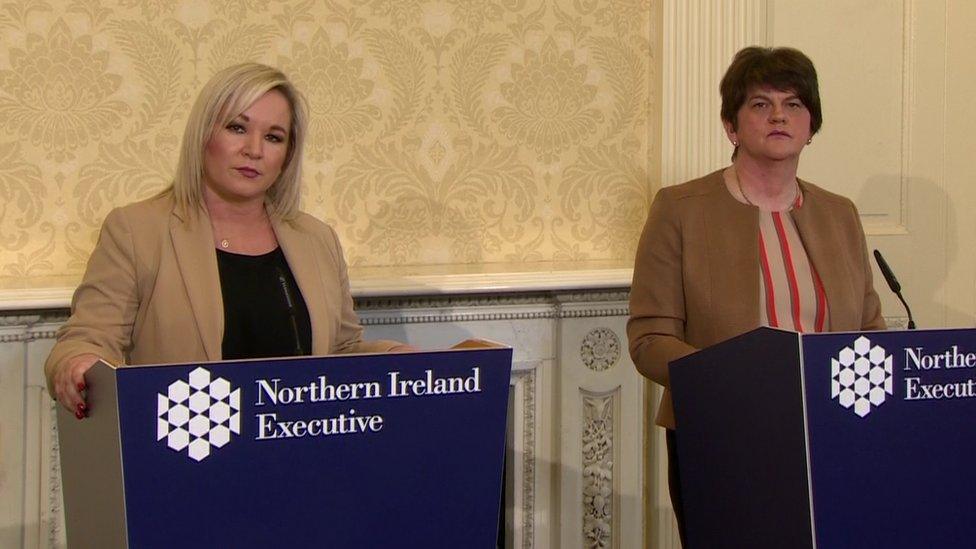Coronavirus panic-buying: 'No risk to food supplies' due to outbreak
- Published

There is no risk to food supplies as a result of the coronavirus outbreak, senior government officials say.
Panic-buying is an issue, but this is expected to end as people realise supply lines are secure and run out of space in their homes to store food.
The officials were briefing Stormont's Agriculture and Environment committee.
DAERA's Head of Farming, Norman Fulton, said the message from producers and retailers was that they were coping well with the increased demand.
His comments came as the first death from coronavirus in Northern Ireland was confirmed.
The elderly male had an underlying medical condition and was being treated in a hospital in the greater Belfast area; he was among the 68 people who have tested positive for Covid-19 in Northern Ireland.
There are currently 366 confirmed cases in the Republic of Ireland after 74 new cases were announced on Wednesday, with two deaths being recorded.

EASY STEPS: How to keep safe
A SIMPLE GUIDE: What are the symptoms?
CONTAINMENT: What it means to self-isolate
HEALTH MYTHS: The fake advice you should ignore
MAPS AND CHARTS: Visual guide to the outbreak
VIDEO: The 20-second hand wash

Mr Fulton said some demand had been driven by the closure of bars, restaurants and other food service outlets, meaning people had to eat at home.
"The supply is there, the only difficulty is that people are over-purchasing," he said.
"Panic-buying can only go on for so long - there has to be a realignment.
"There's only so much you can store so that should correct itself."
'Main concerns'
Stormont's Agriculture and Environment committee was told that the focus of departmental effort was to keep food moving, especially off farms.
It heard that an assessment showed that up to 25% of the 3,000 departmental staff might not be able to work due to sickness.

Northern Ireland's chief vet Robert Huey said his staff would not lose sight of their animal welfare responsibilities
Northern Ireland's chief vet Robert Huey said meat inspectors in processing plants were a particularly important group, as they certified produce for consumption.
He said his staff would not lose sight of their animal welfare responsibilities and that he hoped to keep TB testing on farms going for the foreseeable future.
Mr Huey said the main concerns for him were the intensive poultry and pig supply chains where animals needed to be regularly moved off farms to factories.
He added that it was sensible to keep marts operating for as long as possible, albeit with social distancing restrictions.
He also said there was regular contact with colleagues in the Republic of Ireland.
The meeting heard that the farming and processing industry had responded quickly, initiating its own protocols to minimise the spread of the virus.
It was told that the College of Agriculture, Food and Rural Enterprise had now cancelled all training and moved students off-campus and on to distance learning to complete courses.
Officials are holding conference calls with representatives of the food and animal feed sectors three times a week to identify any emerging issues.
- Published18 March 2020

- Published18 March 2020
